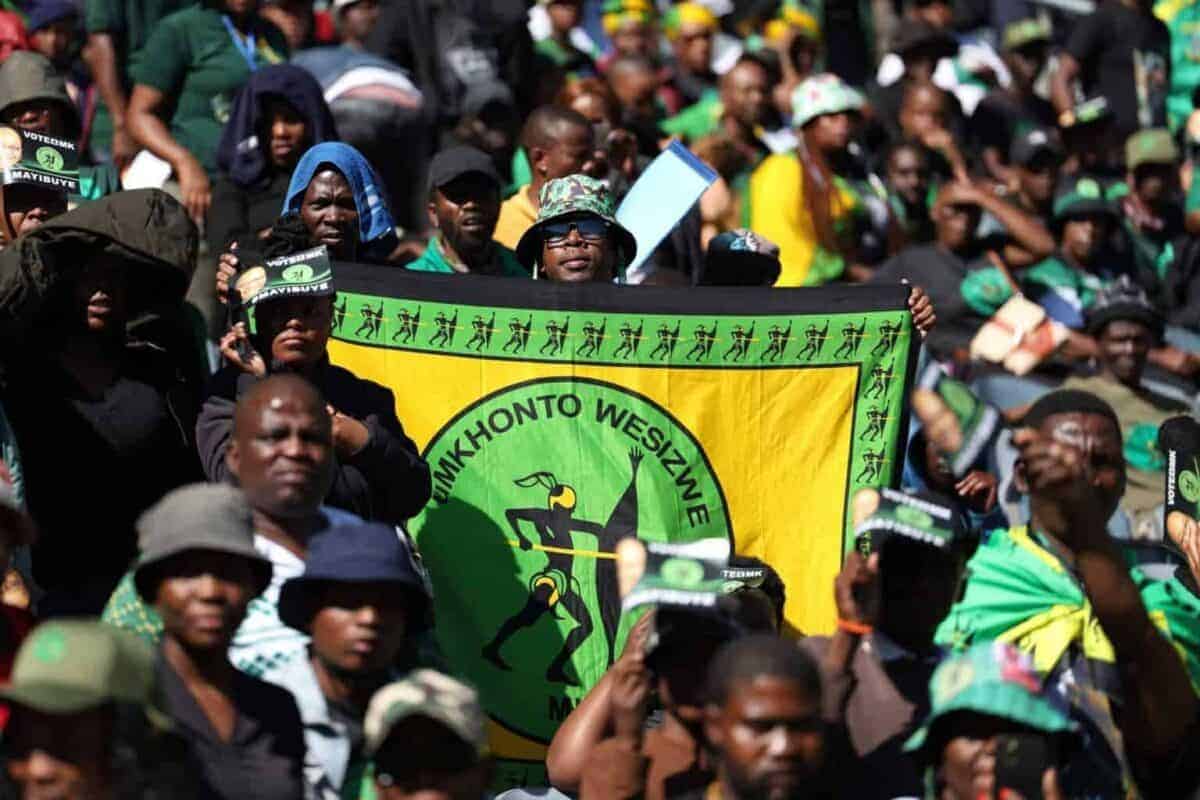Internal wrangles and leadership purges leave MK outside provincial power, despite having the highest vote in KwaZulu-Natal.

Two weeks ago, the National Freedom Party (NFP) caused quite a stir in the KwaZulu-Natal provincial legislature by threatening to withdraw its support for the governing coalition led by Inkatha Freedom Party (IFP) premier Thamsanqa Ntuli.
If it wasn’t for the fact that the collective attention of the nation is on the Madlanga Commission of Inquiry and the parliamentary ad hoc committee – which are probing allegations of corruption and political influence on the police – this would have been a somewhat seismic event on the country’s political front.
But it wasn’t. Life is going on and Ntuli is still premier of KwaZulu-Natal.
By the NFP’s own assertion, it makes no logical sense that the uMkhonto weSizwe (MK) party, led by former president Jacob Zuma, got 45% of the vote in KwaZulu-Natal, but somehow finds itself outside the government of provincial unity as the official opposition.
Although it did not win the province outright, MK got the highest vote in the province.
ALSO READ: Zuma’s boot will do Stalin proud
While the NFP was eager to go into government with the ANC and the IFP, it took it more than a year to realise the injustice of having a party with 45% outside the coalition.
But the truth is, the MK party sabotaged itself out of the provincial government, as well as the national government, by sitting back when everyone was hustling for partners to govern with.
If the ANC could convene partners to the negotiating table at national level with only 40% of the vote, what stopped the MK party from doing the same in KwaZulu-Natal? The answer lies in the NFP itself.
The MK party has been at pains to tell anyone asking about its internal governing structures to mind their own business, because what happens within the party is its own business.
So, when the party fired six secretary-generals within two years, the country could only marvel at the comical situation that Zuma has allowed to unfold by having total control over the senior leadership of the party.
ALSO READ: ‘He’s the undisputed centre of gravity’: Will Hlophe and Makhubele survive in Zuma’s MK party?
He hires and fires top party leadership at will. And therein lies the problem of MK possessing the biggest slice of the KwaZulu-Natal vote, but none of the governing power.
Zuma is treating the party as his personal fiefdom.
In any other party, if the leader of the parliamentary caucus fires the chief whip and replaces them with a candidate of their choice, it would be assumed that the whole party is in agreement with the move.
But in MK, parliamentary leader John Hlophe, who is also party deputy president, was himself suspended for firing party chief whip Colleen Makhubele. Whether this has anything to do with the roping in of former ANC stalwart Tony Yengeni, the country will never know. Only Zuma knows.
The NFP can scream loudly about the MK party’s exclusion from the provincial government, but the MK party itself is allowing its internal ructions to hold it back.
ALSO READ: MK party places John Hlophe on precautionary suspension
When is the party going to find the time to sit down with the NFP when it has a disciplinary hearing against the suspended deputy president looming? Its president just fired Des van Rooyen after a day as chief whip.
Makhubele is now alleging harassment, including unwanted romantic advances and character assassination by Hlophe. It is a right royal mess in the MK party.
No-one knows if the MK party will end up in government, but it is surely to the benefit of the electorate that they first clean up house.
After which they will then have the right structures and time to engage other parties and perhaps be able to govern effectively.
Support Local Journalism
Add The Citizen as a Preferred Source on Google and follow us on Google News to see more of our trusted reporting in Google News and Top Stories.





